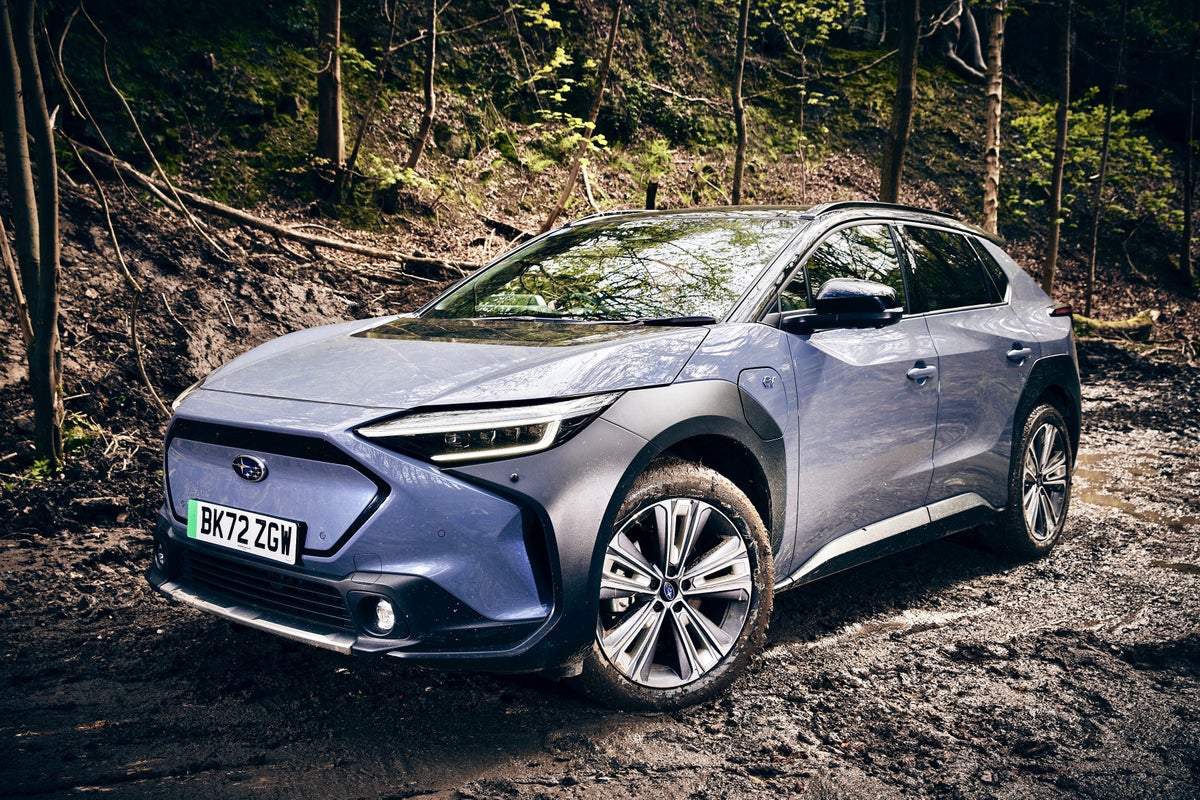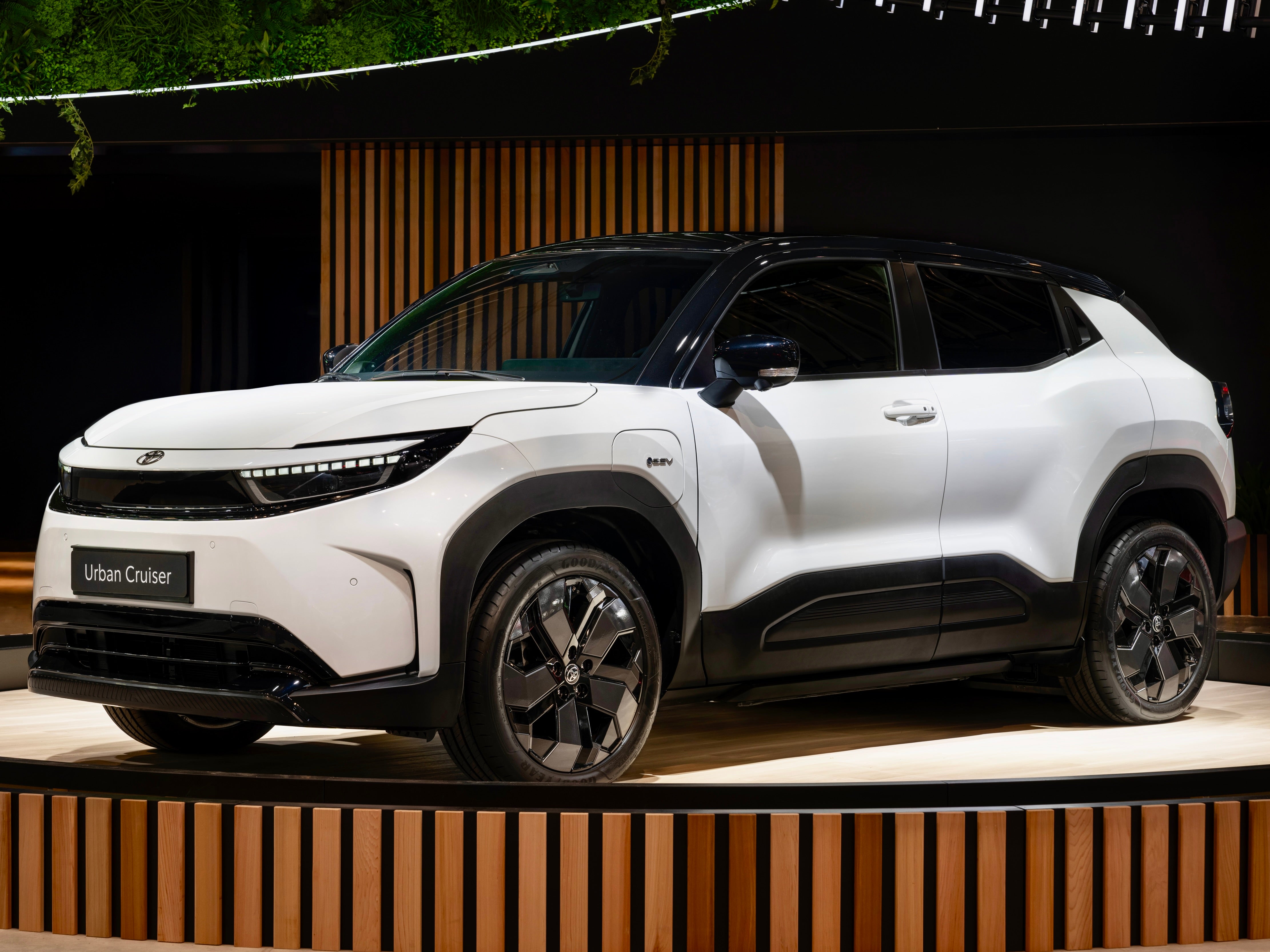
When it comes to EVs, Subaru probably isn’t the first brand that comes to mind. The Japanese 4x4 specialist is more famous for their rugged off-roaders like the Forester – with a new model imminent – or four-wheel drive rally cars of the 1990s.
The mention of those rally cars brings out a broad smile on the face of Lorraine Bishton, Subaru’s UK MD who joined the company a year ago from supercar maker McLaren. Bishton also has plenty of 4x4 experience from her time at JLR, but the opportunity to take a strong brand in Subaru and lead it into the electrification era was too good to miss.
“We’ve all got memories of Subaru in its heyday,” Bishton tells us. “It’s in a situation where I think in the UK some people aren’t a hundred per cent clear what the brand stands for today – and it’s embarking on quite an exciting journey.”

That journey, of course, means electrification, but not before one of the stalwarts of the Subaru range is refreshed. The Forester plays a big part in bringing in revenue for the brand and its retailers, with Subaru’s current volumes not high enough for the company to worry about meeting the Government’s ZEV Mandate targets.
Last year Subaru sold 2,419 cars – ten more than in 2023 – with Bishton revealing that demand exceeded supply.
Subaru’s only current electric car is the Solterra – a car developed with Toyota as part of a joint venture, with Toyota selling it as the bZ4X.
The Solterra is a car that has already impressed Bishton for its off-road credentials. “Solterra surprised me off road,” said Bishton. “It’s better than I think most people would expect. I was impressed with it and it’s certainly capable of what most people would want to do with that car – we put it around the same course as we did the Outback and the Forester.”
The Solterra is only just the start of Subaru’s EV onslaught, though, with Bishton revealing the extent of the model line-up heading to Subaru’s loyal band of highly-regarded dealers soon.
“Globally by 2026, we’ll have four EVs including Soterra,” said Bishton. “We’ll have three of those in the UK. Then we’ve got another four coming by 2028.”
Although the Subaru range will grow exponentially in the coming years, Bishton still thinks the brand will be niche. “In the UK we’ll still be a niche brand, but we’ve got the opportunity to grow volume way beyond where it is today.”
Bishton confirmed that the new range of electric Subarus would be SUVs, and that they would all be true to the brand’s rugged image. Some of them would also follow the Solterra’s lead and come because of the company’s relationship with Toyota.
“Some of them are joint ventures,” said Bishton. “Obviously we’ve had the alliance with Toyota for 20-odd years and we can look at their rich array of EVs that they have on the market at the moment to get some sort of vision of those.”

That means Subaru versions of Toyota’s recently-announced Urban Cruiser EV – a car that will rival the Volvo EX30 and Hyundai Kona – and bZ3 models unveiled in China last year are all a possibility.
However, not all of the seven Subaru EVs set for the UK will be Toyota clones. “There are products that are the result of joint ventures that are Subaru led,” said Bishton. “Some will be built in Subaru plants and there will be dedicated Subaru product as well. So it’s not just joint venture product in the future, we’ll have dedicated Subaru product as well.”
Bishton has no plans to alter Subaru’s network of mostly family-run dealers, although they’re going to have to adapt to the opportunity presented by EV fleet sales.
“It’s going to be interesting because our current customer base is extremely loyal – they buy through the network,” said Bishton. “At the moment in the world of EVs, most of that business is going down the fleet channel. So you’re engaging with customers in a different way. For us it’s quite exciting – we’re bringing new people to the brand, particularly younger generations who are too young to remember the Subaru heyday that we remember.
“For our dealers fleet is a new sales channel, but equally it’s incremental business for them as well because they’re talking to people they wouldn’t have spoken to previously. We’ve got some work to do to help the dealers on that journey, but it’s bringing new people to the brand.”
Bishton is confident that Subaru’s traditional customer base will embrace the switch to EV, too. “Our dealers are well established family businesses where you’ve got multiple generations of families that have always bought their car from the same retailer. As we go through an EV transition, that can be a strength because our customers need trust and they know the dealer is still going to be there in five years’ time. They’re going to get good sound advice from that retailer.”
As Subaru’s sales increase, it’s going to have to comply with the government’s ZEV Mandate, which is under consultation at the moment. Subaru is banking credits for future years, while Bishton agrees with her boss, William Brown, managing director of International Motors which imports Subarus to the UK, when it comes to heavier taxation of cars with internal combustion engines in the future.
“I think that’s inevitable, but I always find with customers it’s better to have a carrot than a stick. The Government has done a really good job of incentivising corporate buyers, we need to stimulate the private market as well.
“The ideal way to do it would be in the same way that it’s worked in the corporate environment is to provide tax incentives to private retail customers. I think if you want to stimulate the market, that is a way the Government can do it very easily. Whether it’s in a position to do that or not, it’s another matter.”
Bishton is happy, though, that Subaru’s reputation for rugged, well-built, reliable SUVs will be appealing to EV buyers, along with the personal touch from its dealer network. “We do well in any sort of reliability survey and from an appeal perspective as well – we’re usually in the top ten for appeal. And with Forbes, Subaru scored really highly in terms of companies that are strong on social responsibility. So, generally it’s a brand that people like and respect and part of that’s down to the product being extremely reliable.”
Bishton also sees an opportunity for Subaru to take advantage of Land Rover’s push upmarket. “You’ve got a group of customers there that want all-wheel drive capability and either feel that the Land Rover brand is too expensive for them or a bit too flashy for them,” she said. “I think Subaru does provide a really credible alternative.”
“We see that with ‘stealth wealth’; wealthy customers who want to fly under the radar and come up the high street, do what they need to do, and because they’re in a Subaru they can do that.
“I think it’s quite a few Land Rover customers out there who have no idea the capability of the Subarus. I think actually their perception is that they need a four-wheel drive and the first brand that comes to mind in the UK is Land Rover. I don’t think Subaru’s on their consideration list for some of them.
“I want to tell the story that puts Subaru back on the consideration list for people. I think everybody’s clear what Subaru’s yesteryear was, but I think in terms of what Subaru is tomorrow, making sure people understand that and introducing that to new generations as well is the challenge.
“Subaru has invested £200 million in a new design and innovation center. They haven’t told anybody about that – Subaru has really cool stuff.”







